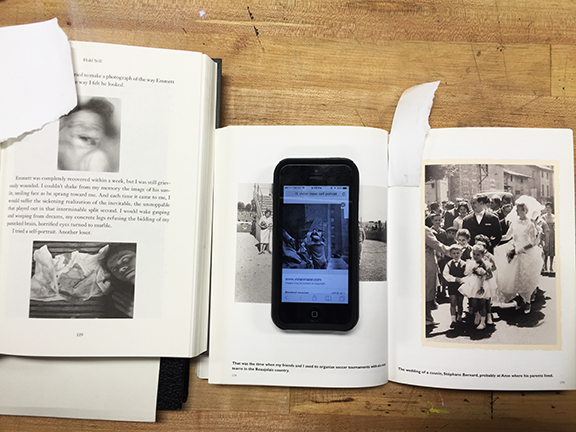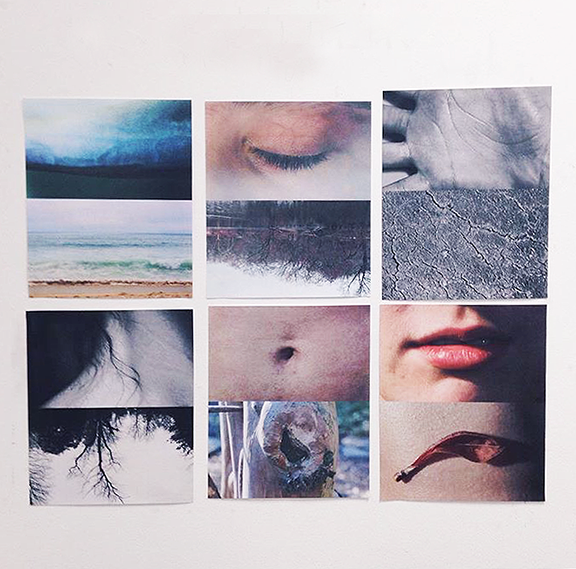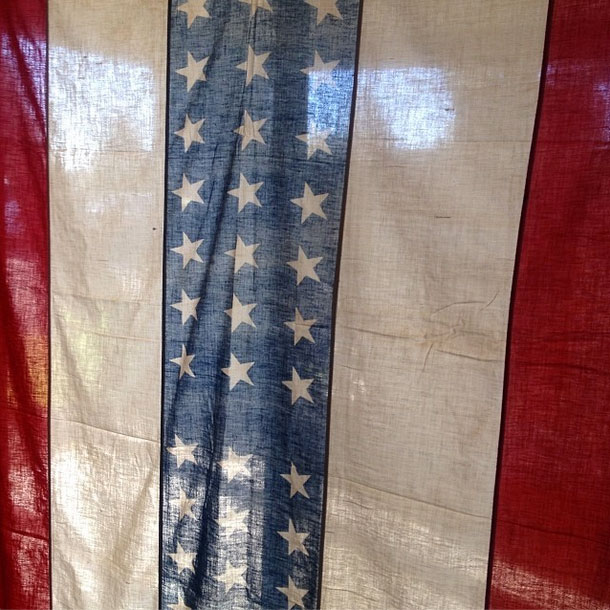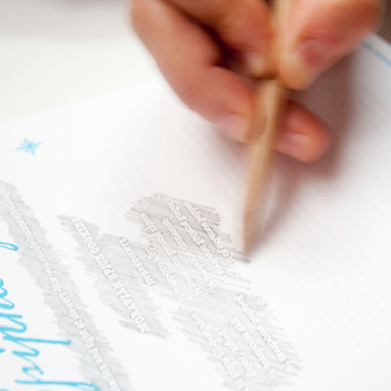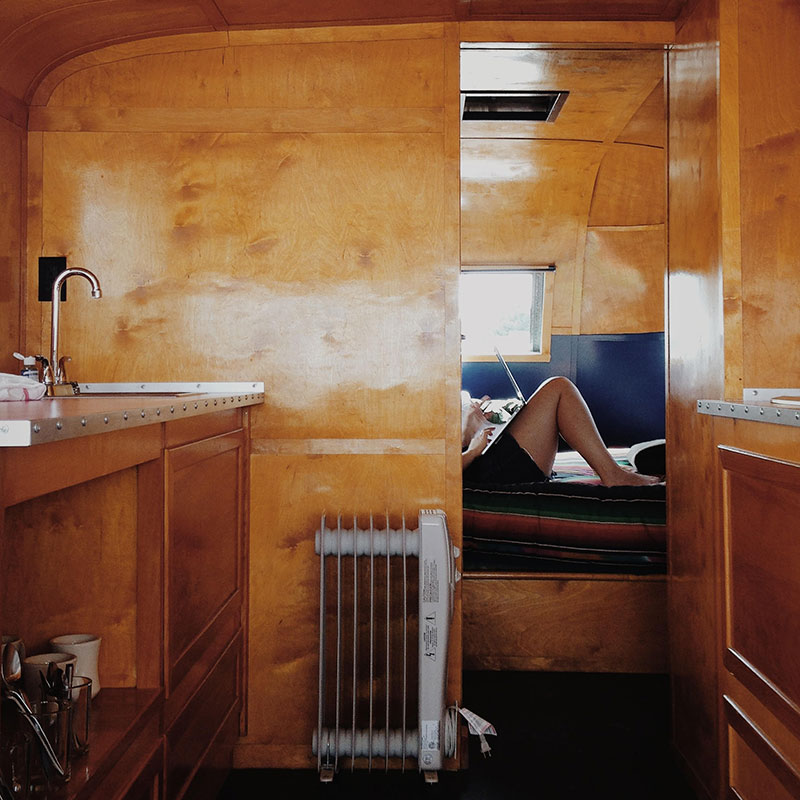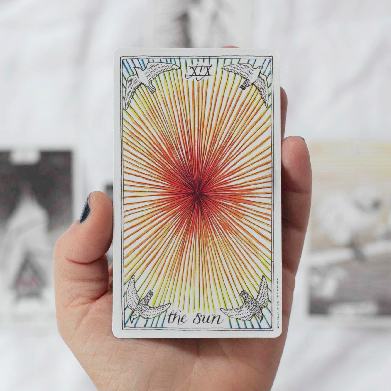Student Work
Constraints
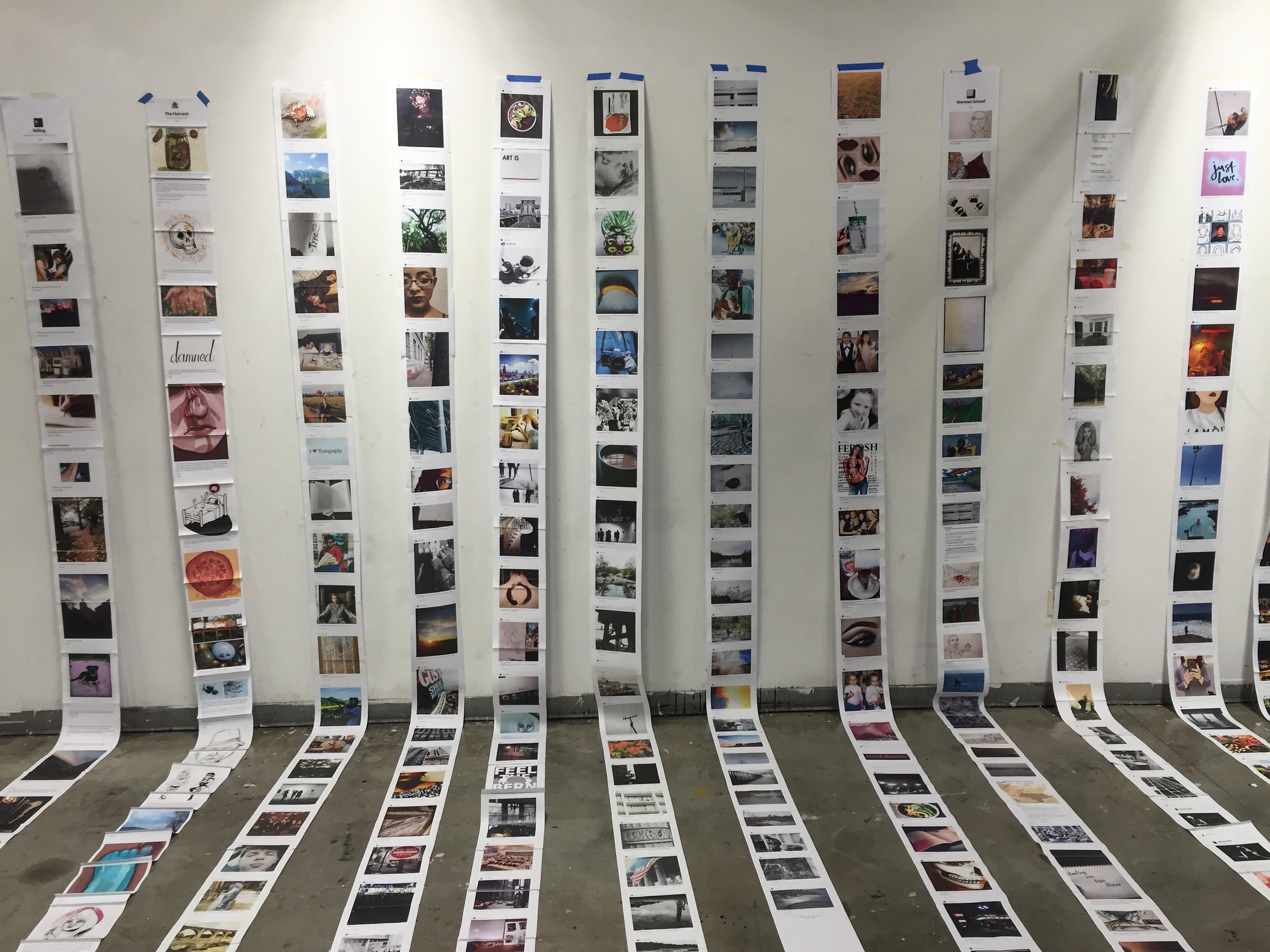
Approaching work in a way that’s unfamiliar can bring you to places you’ve yet to think about. Building ‘wild cards’ into your practice goes beyond simply executing what you think is a great idea, and moves into creating the conditions for great ideas to reveal themselves. Constraints are impositions that force you to frame things in ways yet to be conceived. Interjected repeatedly, you lose your way only to find the *thing* not yet heard or seen, communicated or experienced.
…
ASSIGNMENT
Create a portrait
Create a portrait of a fictional character via an Instagram or Tumblr account, that also satisfies the many parameters provided.
Parameters:
1. The provided bio is gender neutral and includes a few places for you to fill-in. Turn in completed bio with your final portrait.
2. Create your chosen online account — Instagram or Tumblr.
3. Your person must have a minimum of 40 posts.
4. 25 of these entries must be original works, created from the POV of your person. 15 can be re-purposed taken from other sources. Keep an orderly tally from whom you borrow content. You’ll also post this with your work at crit.
5. All of your entries must have captions that explains/express the post.
6. Make sure your posts and captions breakdown as follows:
⟶ 5 of these posts must include a single color predominantly
⟶ 5 must include images of themselves, not necessarily “selfies”
⟶ 5 must be about their day, separate from what they eat
⟶ 5 must be about the distant past, older than 10 years
⟶ 5 must speak to something on which they are currently working
⟶ 5 must include the place in which they live
⟶ 2 must be videos or animated GIFS
⟶ 2 must be opinionated in nature
⟶ 2 must be “regrams” or identified as another’s picture
⟶ 2 must be intentionally blurry
⟶ 2 must be questioning something
…
See Julia Laughlin’s portrait “Quinn Allen Darcy” on Instagram

See Carley Summerville’s portrait “Carol Pierce” on Instagram

See Megan Phillips’s portrait “Lewis Kleinkopf” on Tumblr

Liberation
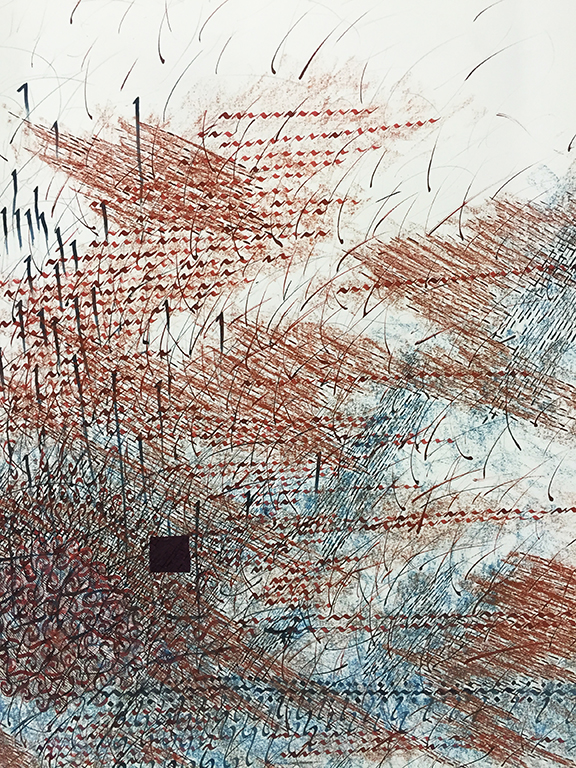
To facilitate the liberation of work [art, design, words] that you’re here to share, we’ll need first to disrupt habits, practices, and pre-conceived ideas. This (first) project is an opportunity to expand time, know yourself better, stretch your comfort levels, and challenge craft.
…
ASSIGNMENTS
Part 1 – Create a surface that contains 33,333 marks
⟶ Individually, your marks ARE NOT to be representational
⟶ Also, the marks combined SHOULD NOT create something representational
⟶ Straight-up, tool to paper, mark making
[One week]
Part 2 – Mark your surface
⟶ Watch “Powers of Ten” by Charles and Ray Eames
⟶ Make a 1″ viewfinder
⟶ With a writing tool in hand, use viewfinder to find the 1″ area of surface you like the very best
⟶ Take your neighbor’s writing tool and fill in your square complexly
⟶ Create a 1” grid covering the entire marked surface starting from the filled in square
⟶ Boxes on the periphery that are not 1” should be trimmed off and saved
[In class]
Part 3 – Destroy your surface
⟶ Determine your unique sum by adding the width and height of your surface (ex: 42 + 25 = 67), then multiplying that number by 10 (ex: 67 x 10 = 670)
⟶ Using any tools available to you now, take your surface and make it into your unique sum. How you deconstruct your surface is up to you.
⟶ X-acto Knife demo and best practices
[In class]
Part 4 – Rebuild your surface
⟶ Using your hundreds of deconstructed “marks” create a composition on a 30×44″ sheet of Stonehenge White
⟶ You can use any materials to reconstruct your surface
⟶ The result can be representational
⟶ You must use ALL the deconstructed surface pieces
[One week]
…
Abbey Miller’s “Liberation”
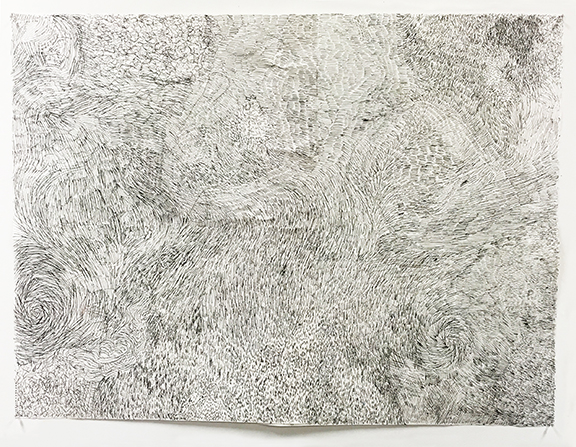
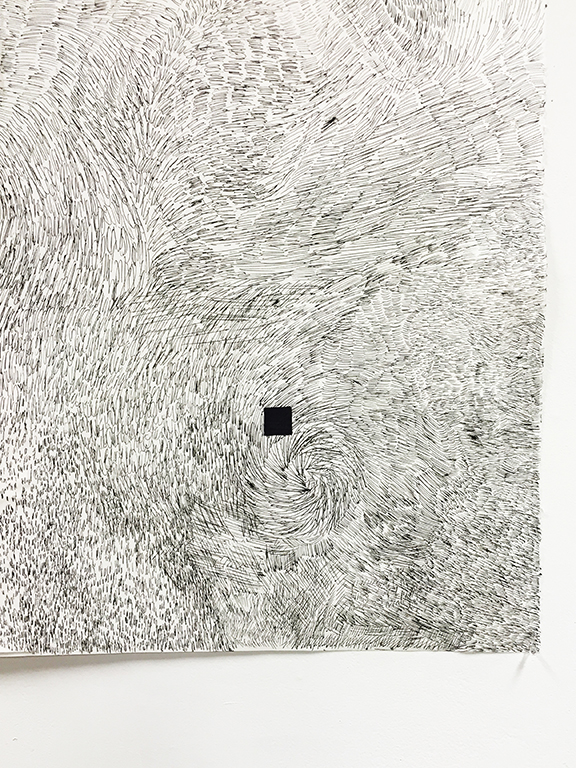
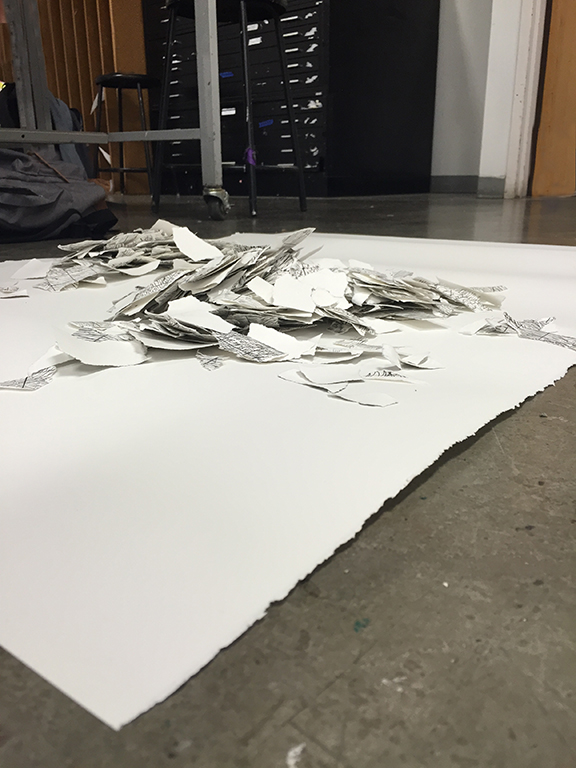
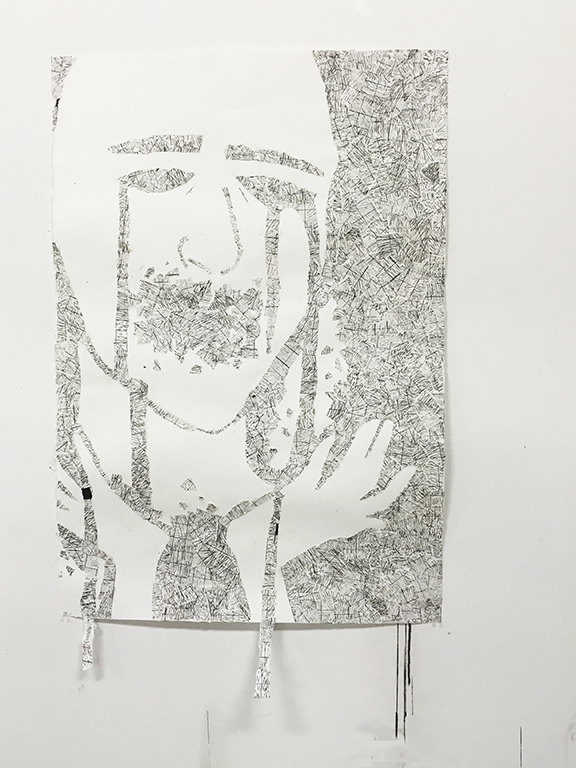
Clayton Turner’s “Liberation”
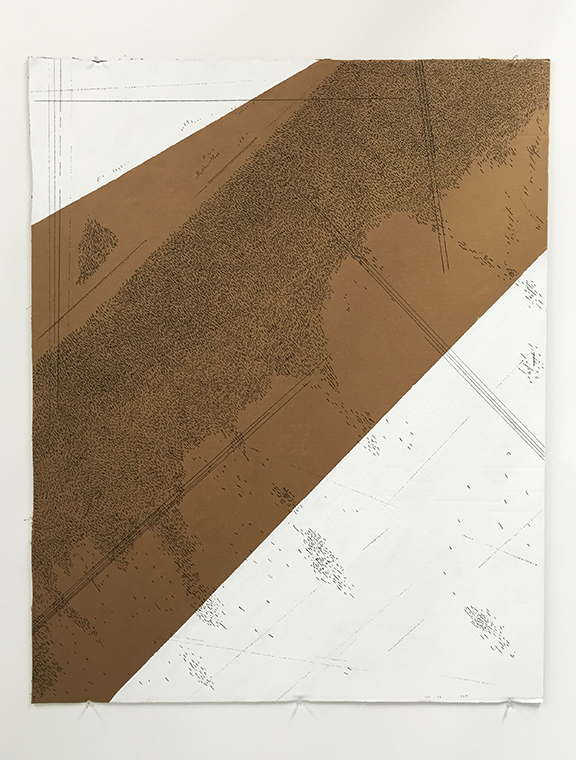
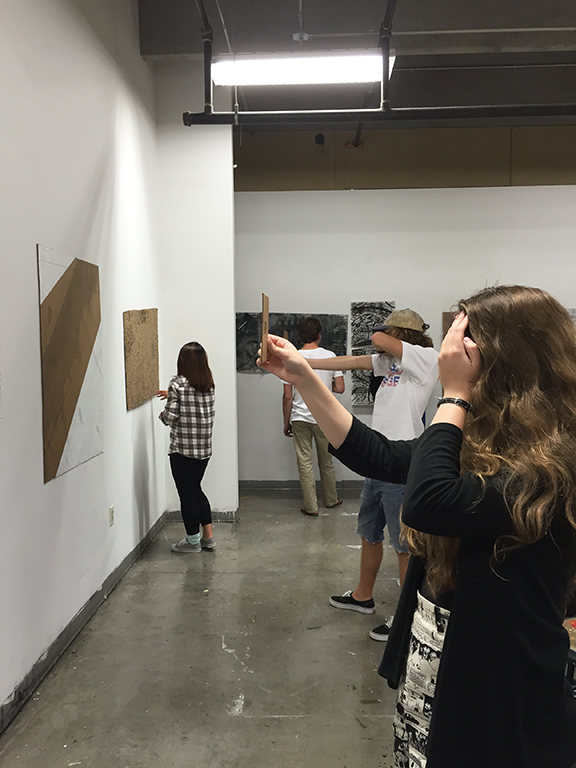
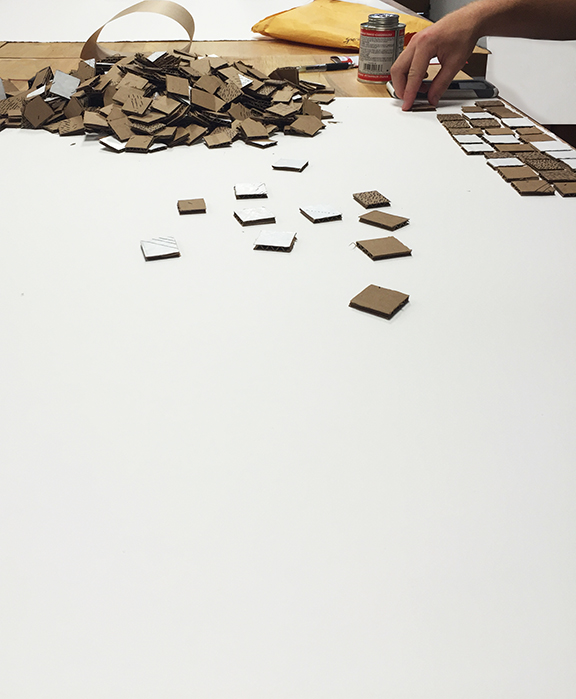
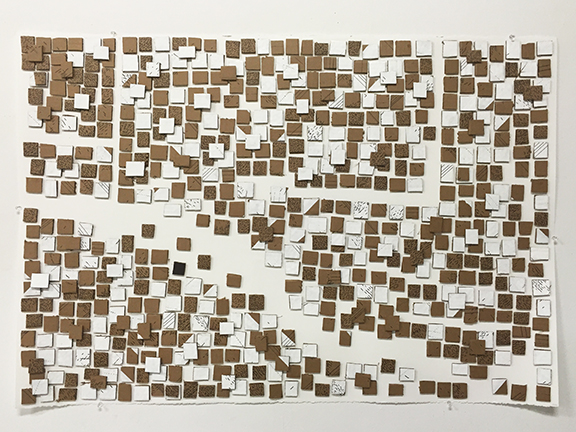
Julia Schillo’s “Liberation”
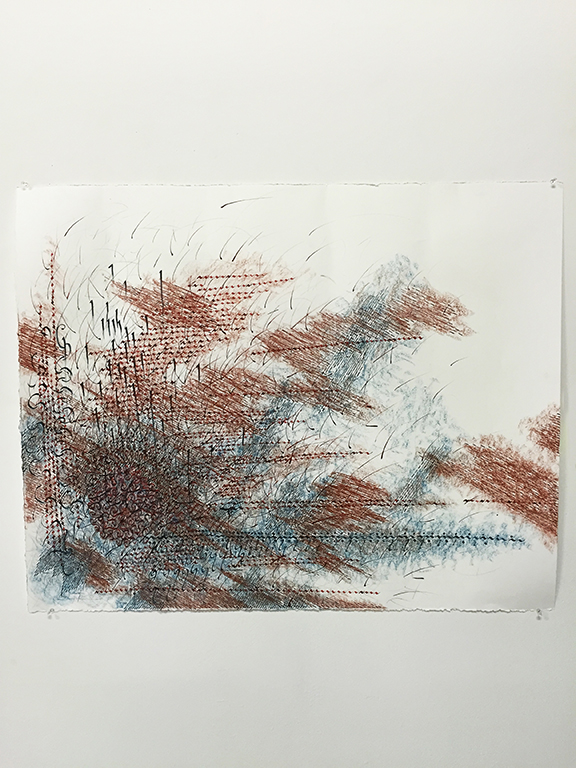
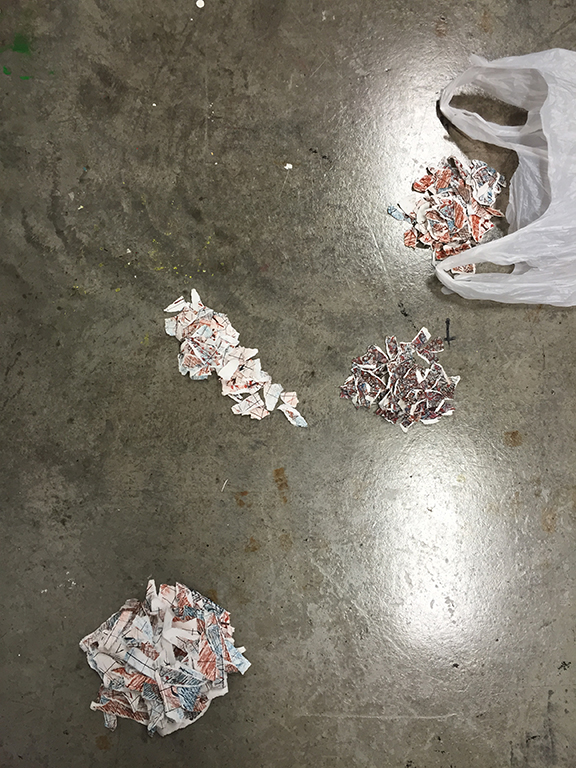
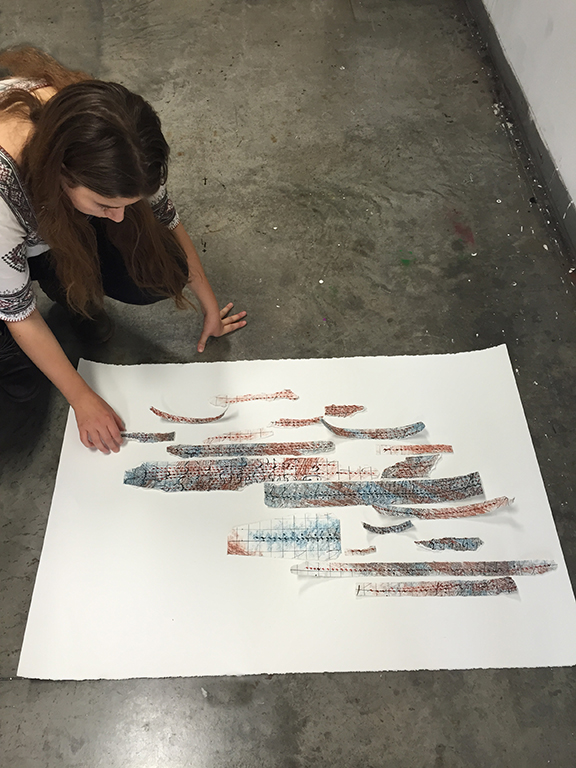
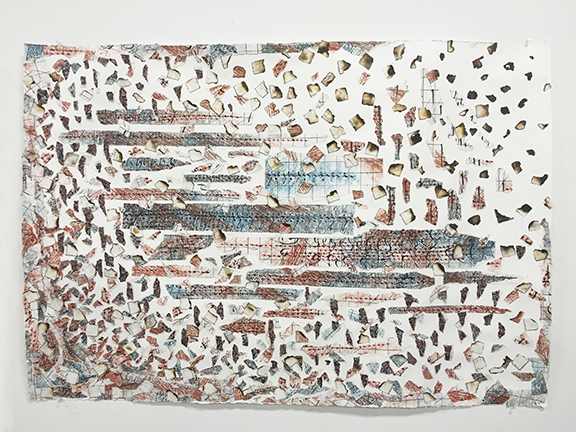
Autonomy
Strong artists and designers aren’t born this way. They don’t just start making distinct, infludential, individualistic work, all of a sudden, because they somehow intuitively knew what their voice were always meant to be. Your influences play an important role—throughout your career. The more clearly you understand how influence has a very important role in your work as an artist/designer, the sooner you will learn how to find your own voice.
Never underestimate what good, critical read will do for your work as an artist/designer. A three hour stretch of your studio time may only be one and a half hours of actual “making” – half the time you will be readingthinkinglooking at something that influences you. It’s not procrastination when you readthinklook carefully. It becomes an integral part of your making.
For the rest of the semester, you’ll engage in self-initiated work. But first, to set the framework for autonomy…
…
ASSIGNMENT
Influences Dinner Party
When you look at another artist’s work with curiosity and care, you open yourself to being influenced by it. So… as a preamble to Autonomy, find 3 works of art that influence you—and that you’d want to have seated at a dinner party together. It’s not enough to choose the 3 pieces of art you like. This fictitious Dinner Party demands your chosen works are able to sit down and communicate with each other, socially. You need to understand the works deeply and the points of tension and fluidity between each of them.
Each work of art MUST be found in a book, taken out from the Library. Everyone will be fully prepared to present their Dinner Party to the class. Prepared means having your 3 books present, with your 3 chosen works flagged, and your being able to speak to the dynamic your unique Dinner Party would possess.
The long-term effect of knowing your influences in this way, is to learn from them and the process of inquiry. Through this practice, you can discover what your work could be like: “What if I approached the canvas more the way Sue Williams does in Hill and Dale, Black-Ops…” You’ll also learn how you’re different from your influence: “I work more with satire, than Chris Ofili.” And this research can help you challenge your current practices: “I want to figure out how Sally Mann uses colloidal solution on location.”
…
Megan Phillips’s Dinner Party + “Autonomy”
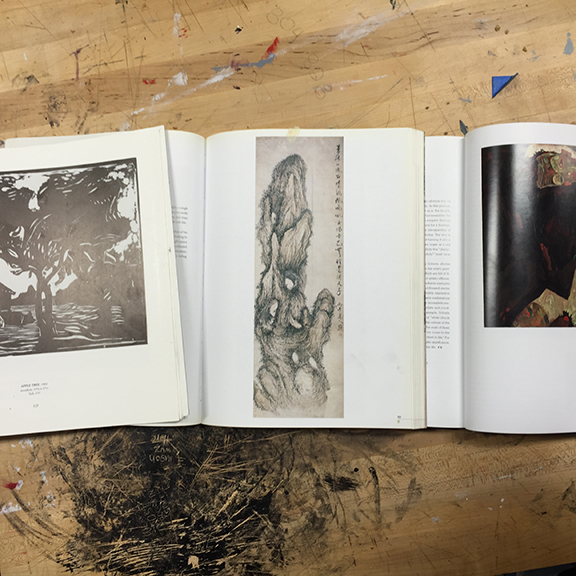
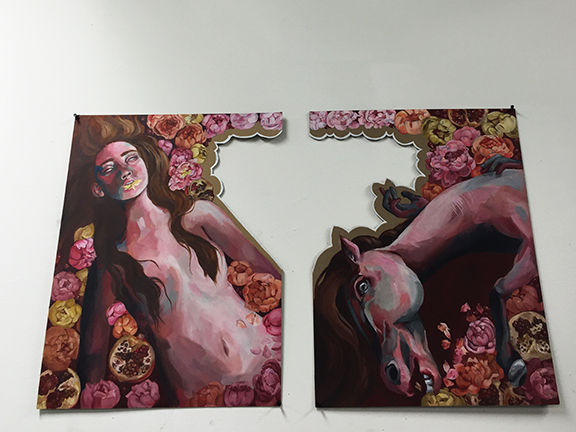
Julia Schillo’s Dinner Party + “Autonomy”
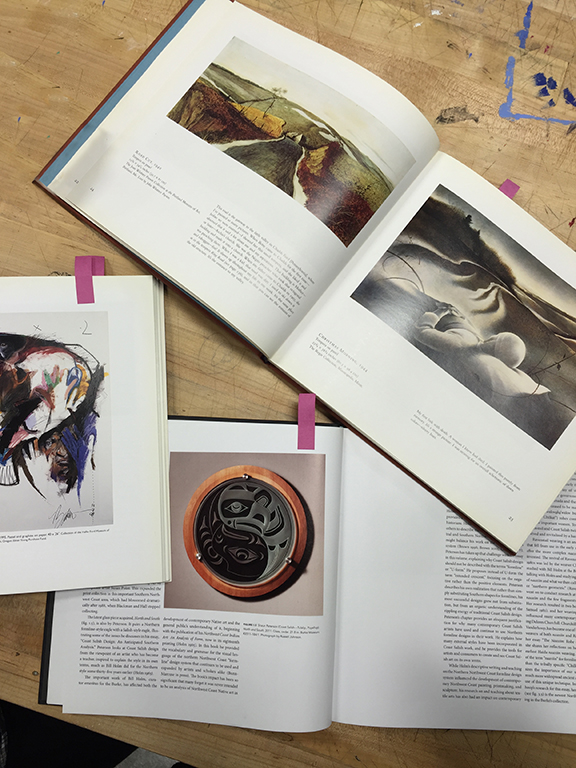
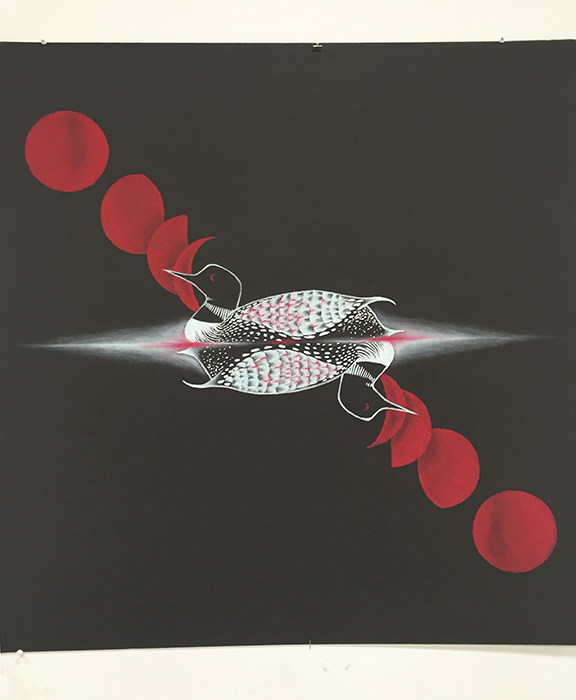
Julia Laughlin’s Dinner Party + “Autonomy”

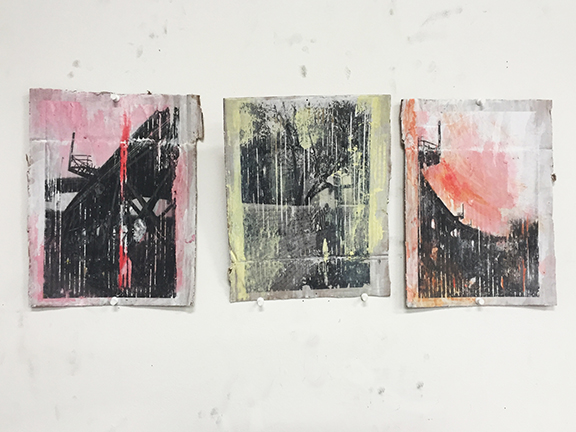
Maddy King’s Dinner Party + “Autonomy”
